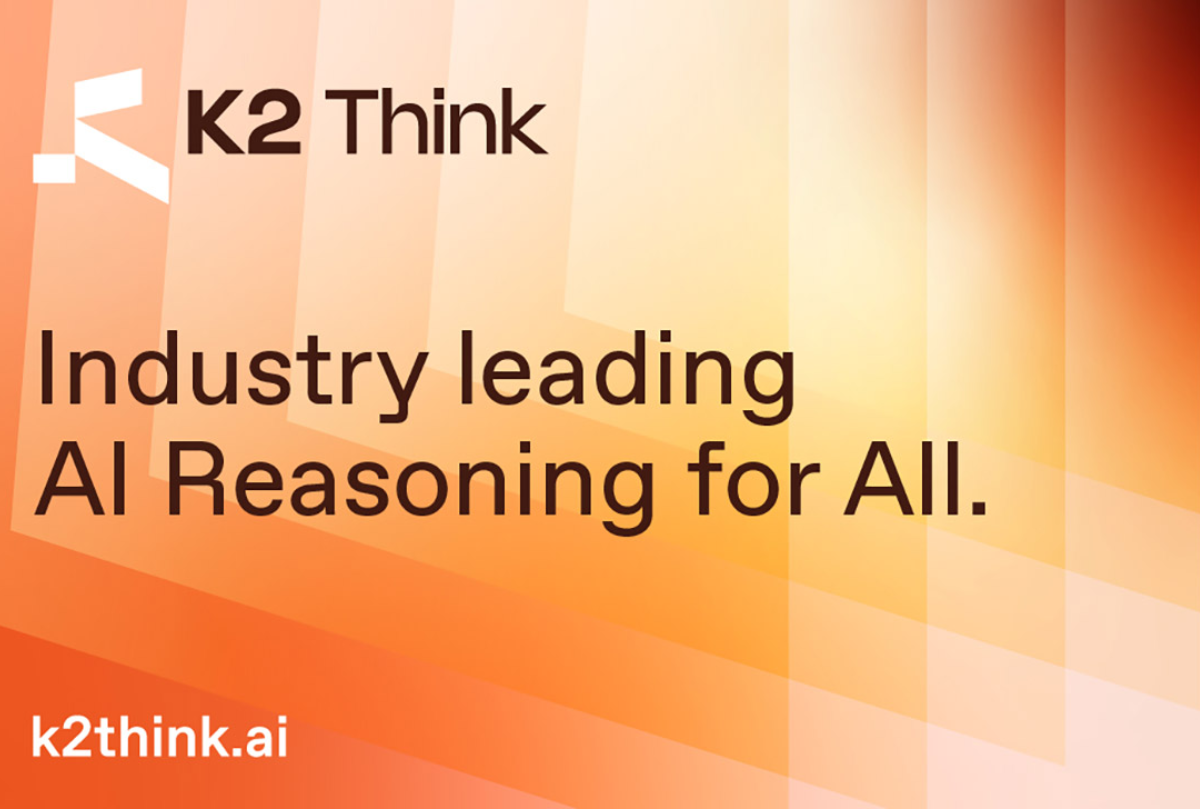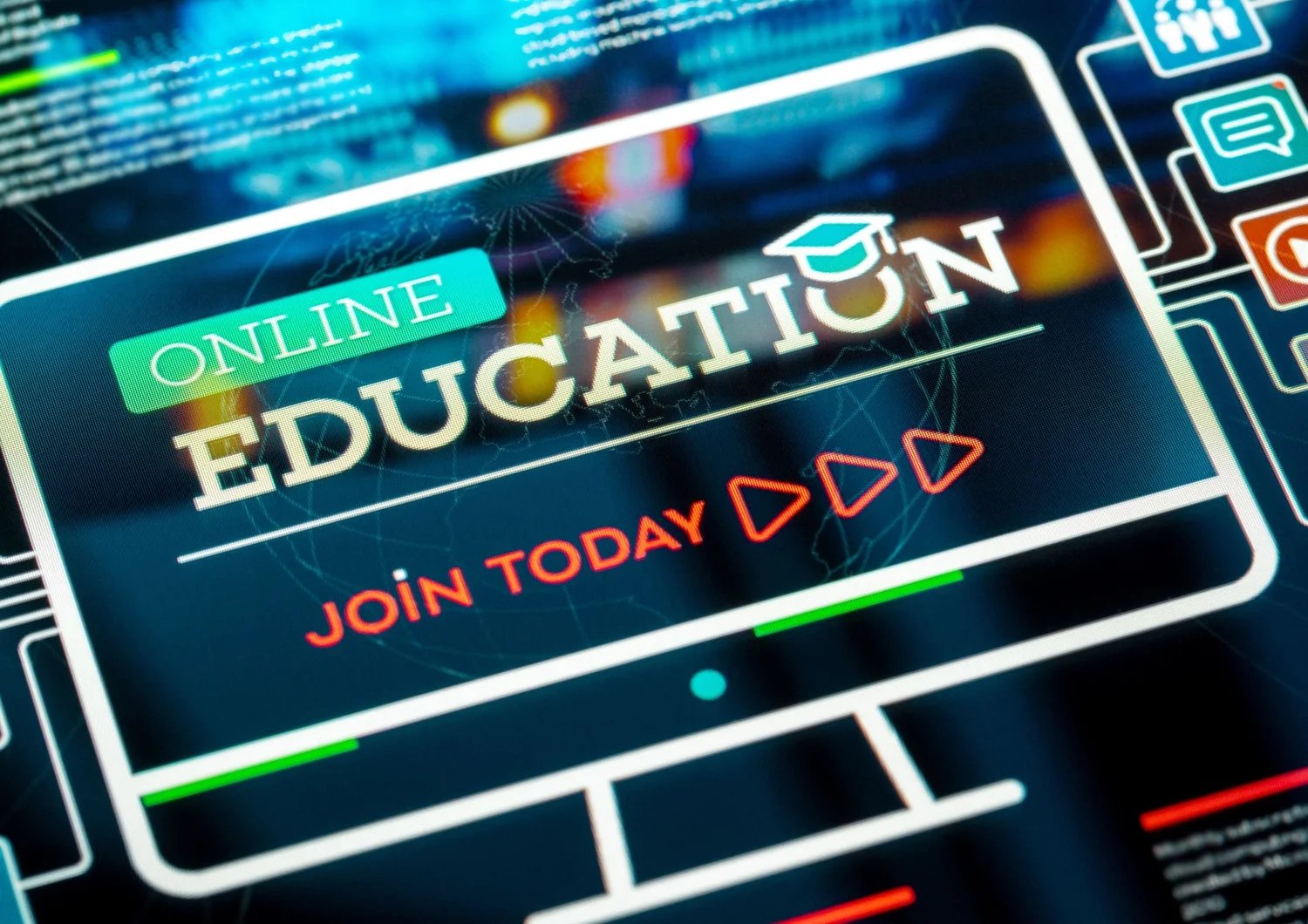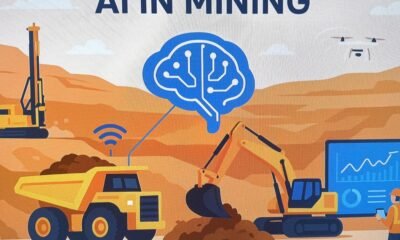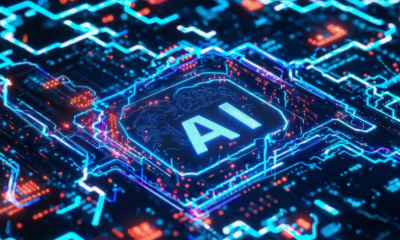Tools & Platforms
Top Tech Companies Are Training Teachers to Use AI

Technology is rapidly transforming classrooms, and tech giants are stepping up to equip teachers with essential skills. Companies like Microsoft, OpenAI and Anthropic recently partnered with teachers’ unions to launch the National Academy for AI Instruction — a major initiative to train hundreds of thousands of teachers in the United States. Artificial intelligence is reshaping education, empowering teachers and opening doors to innovative instruction methods.
Tech Companies Offering Teacher-Focused AI Training
Here’s how top tech firms are revolutionizing the education industry through AI.
Microsoft and OpenAI Partner With Teachers’ Unions
Microsoft, OpenAI and Anthropic collaborated with the American Federation of Teachers and the United Federation of Teachers to launch the National Academy for AI instruction. Announced in July 2025, this ambitious $23 million project seeks to train 400,000 K-12 teachers over the next five years. They plan to create comprehensive AI curricula available online and through an in-person campus in New York City to make AI training available to educators nationwide.
Microsoft is reportedly ready to invest $12.5 million into the effort over the next half decade, OpenAI $10 million and Anthropic $500,000 in the first year.
Google’s AI for Educators Program
With its AI for Educators offering, Google poured significant time and effort into teacher training with practical activity sessions and toolkits designed to integrate generative AI into daily classroom activities.
Google’s approach emphasizes ease of use to ensure educators can confidently utilize the technology to enhance their lessons, improve student interaction and reduce administrative burdens like grading and feedback. This self-paced program provides practical, hands-on exposure to AI tools based on assets developed by Google AI experts and developers from MIT RAISE.
Amazon Web Services Educate
Amazon Web Services (AWS) offers AWS Educate, a global initiative designed to teach educators and students about cloud computing, AI and machine learning. AWS provides free resources, workshops and online modules that empower teachers to integrate AI technology into their curricula. Amazon’s massive infrastructure gives educators easy access to real-world AI tools and prepares students for possible careers in tech-related industries.
IBM AI Education Projects
IBM has launched multiple AI-focused education initiatives, including IBM SkillsBuild and the Teacher Advisor platform. SkillsBuild offers courses on AI fundamentals and digital skills tailored to K-12 educators. Teacher Advisor uses the IBM Watson AI technology to quickly help teachers find standards-aligned lesson plans and resources — streamlining curriculum preparation and personalized teaching strategies.
Meta’s AI for the Classroom Initiative
Meta (formerly Facebook) joined the trend with its Meta for Education beta program, which focuses on immersive learning experiences through virtual reality (VR) and augmented reality (AR). This program provides educators with training on using VR and AR tools to create interactive lessons, improve student participation and facilitate experiential learning. Meta aims to bridge the gap between theoretical knowledge and practical application to prepare students for future tech advancements.
Teachers Are Already Using AI in Creative Ways
A RAND Corp. analysis revealed that from 2023 to 2024, the number of districts providing AI training more than doubled. In 2024, 48% reported offering AI education — a significant jump from 23% the previous year. If districts stay on track, by fall 2025, nearly 75% will have trained the educators in AI. The system clearly recognizes the importance of this technology in education and is acting swiftly to ensure teachers are prepared.
Educators are using different tools to encourage classroom engagement. In language arts, they use AI to provide feedback on student essays. Math teachers also utilize apps that adapt to individual student learning paces so each experience feels personalized and focused. Science instructors perform AI simulations and experiments to make complex topics easier to grasp and more engaging.
It’s not just the students reaping the benefits. Grow With Google found that 83% of teachers expect AI tools to save them at least two hours of weekly classwork. In addition, 74% feel confident using generative AI in their instructions because it helps them automate routine tasks like grading and lesson planning. This way, teachers can focus more on individualized teaching and be more creative with lessons.
Students Are Embracing AI
Learners are already comfortable incorporating the tech into their daily activities. Over 25% of students report using AI-based tools “very frequently” in their studies, whether for homework assistance, language learning or interactive lessons. Students readily adopt AI, suggesting a future where integration in education is commonplace and essential.
A recent survey by the National University of Science and Technology POLITEHNICA Bucharest found that 80% of students feel AI-based tools improve their learning efficiency, while 82.4% say AI helps them understand difficult topics and achieve better grades. Students also reported that AI-led interactive exercises and simulations helped reduce the time they spend on researching, processing information and performing complex computations.
Why Are Tech Companies Investing in AI Training?
Tech giants recognize AI’s transformative influence in education, and these investments ensure teachers stay ahead of innovation. Companies also understand the economic benefits — equipping educators today creates future generations comfortable with technology, potentially driving demand for AI and tech solutions in the future.
These investments help tech firms build goodwill and trust within communities, making them attractive partners for schools and institutions. The strategy also allows companies to brand themselves as social development advocates and pioneers of responsible technology use.
Prevailing Issues in the Use of AI in Classrooms
Despite the enthusiasm, there are still downsides to integrating AI in classwork — privacy being a key concern. Parents and educators worry about data collection and misuse of student information. Over-reliance on technology is also an issue, with many fearing that artificial intelligence might reduce critical thinking and problem-solving skills among young, developing minds. Schools and tech companies hope to address these by promoting transparency and responsible implementation.
Issues over algorithmic bias also emerge. Stanford University researchers even found that some AI tools may unintentionally perpetuate biases by providing less personalized resources for minority or underserved students. The technology continues to be a work in progress, and both the tech and education sectors must monitor and correct these biases to ensure equitable learning outcomes.
The U.S. Department of Education and the White House itself support this adoption, noting that beyond easing the burden on teachers and students, AI systems must protect data privacy, include discrimination protections, offer inspectable and explainable tools and provide a recourse to humans in case problems come up in the process. Humans must always be in the loop.
Tech Is Empowering Teachers and Learners
AI integration in education is no longer optional — the way to the future inevitably involves technology use. As developers and tech firms continue investing in teacher training, educators become better equipped to use artificial intelligence to improve teaching quality, student scores and long-term learning outcomes. Teachers empowered with such skills are poised to lead technologically advanced and human-centered classrooms — preparing students for a future where innovation and education seamlessly intersect.
Tools & Platforms
Indonesia Drafts Stricter AI Rules Amid Rising Deepfake Concerns

TLDRs;
- Indonesia drafts stricter AI regulations, targeting deepfakes as Nezar Patria urges platforms to provide free detection tools.
- Deepfake content has surged 550% in five years, raising alarms over misinformation and digital safety.
- Jakarta’s policies align with global efforts, following China’s watermarking rules and EU’s proposed AI transparency laws.
- The detection battle remains tough, as deepfake creation tools advance faster than available verification technology.
Indonesia is intensifying its push for tighter artificial intelligence (AI) regulation as concerns over deepfakes continue to mount.
At an event in Jakarta on September 10, Nezar Patria, the country’s deputy minister for communications and digital, called on major technology companies to provide free tools that help users identify AI-generated content.
Patria pointed to research from Sensity AI showing a staggering 550% rise in deepfake content over the past five years. He warned that the actual scale could be much larger, given the rapid accessibility of generative AI tools. According to him, while the technology behind deepfakes is advancing rapidly, ordinary users lack the resources to verify what they see online.
Tech Giants Called to Step Up
The Indonesian government believes major platforms such as Google, Meta, and others already have the algorithms and computational capacity to deploy large-scale detection systems. What is missing, Patria argued, is public access to these tools.
“Detection capabilities shouldn’t be locked away behind private walls,” Patria emphasized, suggesting that transparency tools must be integrated into the platforms millions rely on daily.
By offering detection features for free, companies could help users spot hoaxes, misinformation, and manipulated videos before they spread widely.
Indonesia Aligns With Global AI Regulation
Indonesia’s move mirrors broader international efforts to confront the deepfake challenge. China already requires watermarks on AI-generated content, while the European Union has proposed new laws mandating clear labeling and transparency for synthetic media.
Data shows that more than 69 countries have introduced over 1,000 AI-related policy proposals, many aimed at reducing risks associated with misinformation and harmful synthetic content. Jakarta’s approach signals that Southeast Asia’s largest economy intends to play an active role in shaping ethical AI use, not just within its borders but as part of a global movement.
Indonesia already enforces digital safety measures through the ITE Law and the PDP Law. The government is now drafting a new set of rules specifically focused on ethical and responsible AI deployment, positioning itself among nations prioritizing both innovation and public protection.
A Race Between Creation and Detection
Despite the urgency, experts note that detection technologies face an uphill battle. The development of generative adversarial networks (GANs) has made creating realistic deepfakes faster and cheaper than ever. In contrast, detection systems must constantly evolve to keep pace with new manipulation techniques.
Even institutions like the U.S. Defense Advanced Research Projects Agency (DARPA) are investing heavily in deepfake detection, underscoring the scale of the technical challenge. Indonesia’s demand for free tools is therefore not only about user empowerment but also about bridging a critical accessibility gap.
As the world witnesses more governments demanding transparency in AI, Indonesia’s regulatory push adds weight to the argument that AI innovation must be balanced with safeguards against misuse. For now, the success of these measures will depend on how tech giants respond, and whether they are willing to place public safety ahead of commercial advantage.
Tools & Platforms
MBZUAI and G42 Launch K2 Think: Compact AI Model Redefining Advanced Reasoning

K2 Think embodies a new approach to building smarter, more efficient AI. With just 32 billion parameters, it outperforms flagship reasoning models that are 20X larger.
The Institute of Foundation Models at Mohamed bin Zayed University of Artificial Intelligence (MBZUAI ) and G42 have announced the launch of K2 Think, a leading open-source system for advanced AI reasoning.
K2 Think embodies a new approach to building smarter, more efficient AI. With just 32 billion parameters, it outperforms flagship reasoning models that are 20X larger. This breakthrough in parameter efficiency makes K2 Think a powerful alternative for advanced reasoning, redefining what is possible with compact architectures.
Built on six pillars of innovation, K2 Think represents a new class of reasoning model. It employs long chain-of-thought supervised fine-tuning to strengthen logical depth, followed by reinforcement learning with verifiable rewards to sharpen accuracy on hard problems. Agentic planning allows the model to decompose complex challenges before reasoning through them, while test-time scaling techniques further boost adaptability. In addition, K2 Think will soon be available on Cerebras’ wafer-scale, inference-optimized compute platform, enabling researchers and innovators worldwide to push the boundaries of reasoning performance at lightning-fast speed. With speculative decoding optimized for Cerebras hardware, K2 Think will achieve unprecedented throughput of 2,000 tokens per second, making it both one of the fastest and most efficient reasoning systems in existence.
K2 Think ranks among the industry’s top reasoning systems, leading all open-source models in math performance across AIME ’24/’25, HMMT ’25, and OMNI-Math-HARD.
More than a technical achievement, K2 Think is a defining moment for AI in the UAE. It reflects how open innovation and close public–private partnerships can position Abu Dhabi as a global leader in AI, demonstrating that the future of reasoning will be shaped not only by size, but by ingenuity and collaboration.
“The new global benchmark set by K2 Think underscores the pioneering excellence of MBZUAI’s Institute of Foundation Models initiative, an expedited pathway for global collaboration and cutting-edge research. It is also an example of the UAE’s commitment to building advanced systems that are developed by our institutions and shared with the world – ultimately progressing technically groundbreaking, practical, and scalable innovations with transformative global impact.”
-His Excellency Khaldoon Khalifa Al Mubarak, Chairman of MBZUAI’s Board of Trustees and Member of the Artificial Intelligence and Advanced Technology Council (AIATC)
“K2 Think has shifted the AI reasoning paradigm from ‘bigger is better’ to ‘smarter is better’. MBZUAI, supported by the UAE ecosystem, is pushing the AI frontier with technology that is open, efficient and highly capable. By proving that smaller, more resourceful models can rival the largest reasoning systems, this milestone marks the beginning of the next wave of AI innovation.”
-Peng Xiao, MBZUAI Board Member, Council Member of Abu Dhabi’s AI and Advanced Technology Council, and Group CEO, G42
Unlike most “open” AI models that stop at releasing weights, K2 Think is fully open source — from training data and parameter weights to software code for deployment and test-time optimization. This new level of transparency ensures that every step of how the model learns to reason can be studied, reproduced, and extended by the global research community.
“K2 Think, developed by MBZUAI’s Institute of Foundation Models, is a significant advancement for the global AI research and development community. By delivering these advances in a fully transparent framework, we are ushering in a new era of cost-effective, reproducible and accountable AI. For an institution just five years young, we are immensely proud of our global researchers, engineers, and teams who are advancing science and technology with ingenuity and a pioneering spirit.”
-Professor Eric Xing, MBZUAI President and University Professor
K2 Think builds on a growing family of UAE-developed open-source models, including Jais (the world’s most advanced Arabic LLM), NANDA (Hindi), and SHERKALA (Kazakh), and extends the pioneering legacy of K2-65B, the world’s first fully reproducible open-source foundation model released in 2024.
K2 Think is available today at k2think.ai and on Hugging Face .
Tools & Platforms
AI tops list of edtech priorities at K-12 schools for the first time in latest SETDA annual survey — EdTech Innovation Hub

The report, which draws on survey responses from edtech directors, state leaders, CIOs and other education leaders across 47 states, shows that AI is now at the top of state edtech priorities for the first time.
Many of the leaders surveyed reported working on guidance, professional development, and policy frameworks in AI while others have already brought on expertise in AI into their agencies to support its responsible use.
“The rise of AI as a top state priority reflects just how quickly the education landscape is evolving,” comments Julia Fallon, Executive Director of SETDA. “But what stands out in this year’s report is the through-line of commitment: state leaders are not chasing trends, they are developing policy and building frameworks that protect students, empower educators, and make technology a true driver of equity and impact. This is the work of system change, and states are leading the way.”
AI surpassed cybersecurity as a priority, which has been the top priority for the past two years. However, SETDA says cybersecurity remains a concern, with many leaders calling for continued infrastructure investment.
Other issues highlighted in the report include devices use, with ongoing debate around restricting student access to devices in classrooms. Leaders also mentioned professional development as an ongoing priority, with many saying this is an unmet need, particularly around the effective and safe use of AI in classrooms.
The ETIH Innovation Awards 2026
The EdTech Innovation Hub Awards celebrate excellence in global education technology, with a particular focus on workforce development, AI integration, and innovative learning solutions across all stages of education.
Now open for entries, the ETIH Innovation Awards 2026 recognize the companies, platforms, and individuals driving transformation in the sector, from AI-driven assessment tools and personalized learning systems, to upskilling solutions and digital platforms that connect learners with real-world outcomes.
Submissions are open to organizations across the UK, the Americas, and internationally. Entries should highlight measurable impact, whether in K–12 classrooms, higher education institutions, or lifelong learning settings.
Winners will be announced on 14 January 2026 as part of an online showcase featuring expert commentary on emerging trends and standout innovation. All winners and finalists will also be featured in our first print magazine, to be distributed at BETT 2026.
-

 Business2 weeks ago
Business2 weeks agoThe Guardian view on Trump and the Fed: independence is no substitute for accountability | Editorial
-
Tools & Platforms1 month ago
Building Trust in Military AI Starts with Opening the Black Box – War on the Rocks
-

 Ethics & Policy2 months ago
Ethics & Policy2 months agoSDAIA Supports Saudi Arabia’s Leadership in Shaping Global AI Ethics, Policy, and Research – وكالة الأنباء السعودية
-

 Events & Conferences4 months ago
Events & Conferences4 months agoJourney to 1000 models: Scaling Instagram’s recommendation system
-

 Jobs & Careers2 months ago
Jobs & Careers2 months agoMumbai-based Perplexity Alternative Has 60k+ Users Without Funding
-

 Podcasts & Talks2 months ago
Podcasts & Talks2 months agoHappy 4th of July! 🎆 Made with Veo 3 in Gemini
-

 Education2 months ago
Education2 months agoMacron says UK and France have duty to tackle illegal migration ‘with humanity, solidarity and firmness’ – UK politics live | Politics
-

 Education2 months ago
Education2 months agoVEX Robotics launches AI-powered classroom robotics system
-

 Funding & Business2 months ago
Funding & Business2 months agoKayak and Expedia race to build AI travel agents that turn social posts into itineraries
-

 Podcasts & Talks2 months ago
Podcasts & Talks2 months agoOpenAI 🤝 @teamganassi



















